Contact:
Laura Simoes
603-620-7111
lsimoes@loebschool.org
Nackey S. Loeb School of Communications announces its Winter Class Schedule
 MANCHESTER, NH — With the turn of the year comes a fresh chance to acquire new skills at the Nackey S. Loeb School of Communications. Students will explore the art of storytelling, gain insights into media literacy, and learn more about the intricacies of effective communication in the digital age. Most classes are free and cover a range of topics, including accessing public records, mastering crisis communications to navigate challenging situations, and addressing the complex issue of hate speech in the modern world. Loeb School classes provide a platform for personal and professional growth at any age or experience level. To secure your spot, please register in advance at loebschool.org/register.
MANCHESTER, NH — With the turn of the year comes a fresh chance to acquire new skills at the Nackey S. Loeb School of Communications. Students will explore the art of storytelling, gain insights into media literacy, and learn more about the intricacies of effective communication in the digital age. Most classes are free and cover a range of topics, including accessing public records, mastering crisis communications to navigate challenging situations, and addressing the complex issue of hate speech in the modern world. Loeb School classes provide a platform for personal and professional growth at any age or experience level. To secure your spot, please register in advance at loebschool.org/register.
Upcoming Winter 2024 Classes
This I Believe—Writing your Meaning
Four Tuesdays: January 16, 23, 30, and February 6, 2024
5:30-7 pm, online
FREE
Instructor: Sally Hirsh-Dickinson
Modeled after NPR’s “This I Believe” series, this four-week, online writing class will lead students through the process of brainstorming, drafting, revising, and polishing a contextualized statement of personal belief in the form of a short essay.
Call of the Wild (and the domestic): Writing about Animals
Thursday, January 18, 2024
5:30 pm-7 pm, online
FREE
Instructor: Kimberly Marlowe Hartnett
A one-session online class on engaging ways to write stories, poems, or memorial tributes about animals.
Your Right to Know–Accessing Online Court Records
Wednesday, January 31, 2024
12 pm-1 pm, online
FREE
Instructor: Annmarie Timmins
A one-session online step-by-step guide to unlocking the wealth of information available within digital court records.
Confirmation Bias
Thursday, Feb 1, 2024
6 pm-7:30 pm, online
FREE
Instructor: Erika Cohen
A class covering the impact of confirmation bias on civil discourse, politics, and news coverage in the digital age.
Hate Speech—from Skokie to Stormfront
February 13, 2024
4:30 pm-6 pm
FREE
In-person at the Nackey S. Loeb School, NH Institute of Politics, Saint Anselm College, Manchester. This in-person presentation will focus on the First Amendment and its protection of the speech we hate, featuring First Amendment expert Gregory V. Sullivan, Esq.
Mastering the Art of the Interview
Thursday, February 15, 2024
12 pm-1:30 pm, online
FREE
Instructor: Elaine Grant
A one-session online class teaching the top ways to conduct memorable and insightful interviews.
Public Access to New Hampshire Court Records: from Witch Trials to E-files
Thursday, February 22, 2024
5:30 pm-7 pm, online
FREE
Instructor: Kathleen Sullivan, Esq.
This one-session online class explores of the history and rights related to public access to court records in New Hampshire.
A new Pro Series of affordable online classes will be offered this winter, as well.
Creating Digital Strategy for Nonprofits
Schedule: Four Mondays, January 22, 29, February 5, 12, 2024
Time: 12:00 PM – 1:30 PM (Online)
Pro Series fee: $59.00
Designed for nonprofit staff and volunteer leaders, this four-week course delves into the world of digital strategy. Participants will gain a comprehensive understanding of digital tools and techniques, enabling them to effectively communicate, engage stakeholders, raise funds, grow participation, and realize their nonprofit’s objectives in the digital landscape. Instructor Lisa Carter builds award-winning communication strategies for nonprofits and businesses at her company, Drinkwater Marketing.
Bad News: Responding to and Communicating through Difficult Issues
Four Tuesdays, January 23, 30, February 6, 13, 2024
12:00 PM – 1:30 PM (Online)
Pro Series fee: $59.00
Every business or organization inevitably faces challenges that may adversely affect their audience and public perception. The Pro Series’ “Bad News” crisis communications course equips participants with effective crisis communication strategies, enabling them to craft clear, concise, and accurate messaging strategies. These skills help navigate through challenging situations, minimizing negative impact and occasionally transforming them into positive opportunities or interactions. Instructor Will Hinkle is crisis-tested and excels at sharing positive news, too, as he does at Eversource, and as a former political communications expert.
The Nackey S. Loeb School of Communications is dedicated to promoting and defending the First Amendment, fostering interest, integrity, and excellence in journalism, and providing the tools and knowledge to improve communication skills. Learn more about the School at loebschool.org.

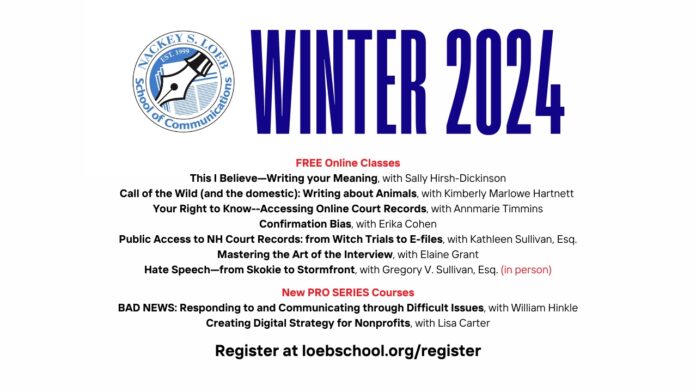
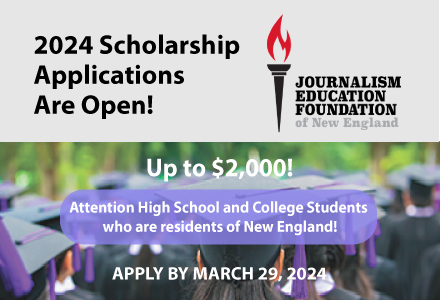

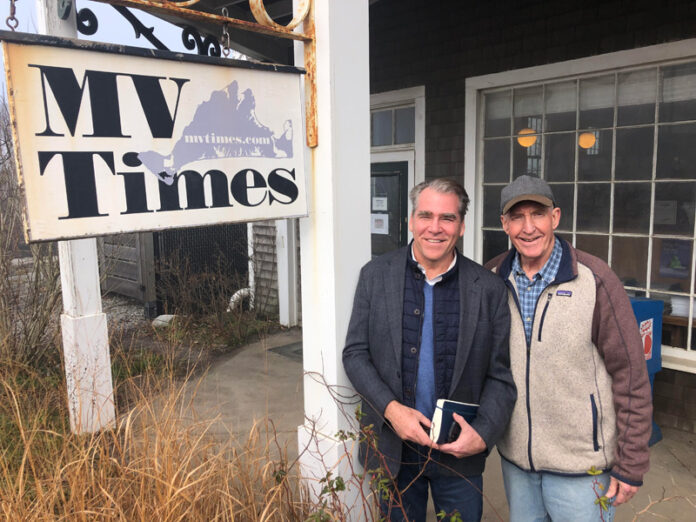
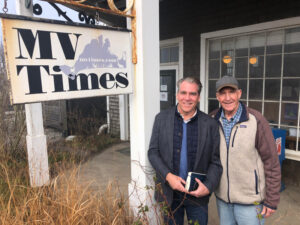
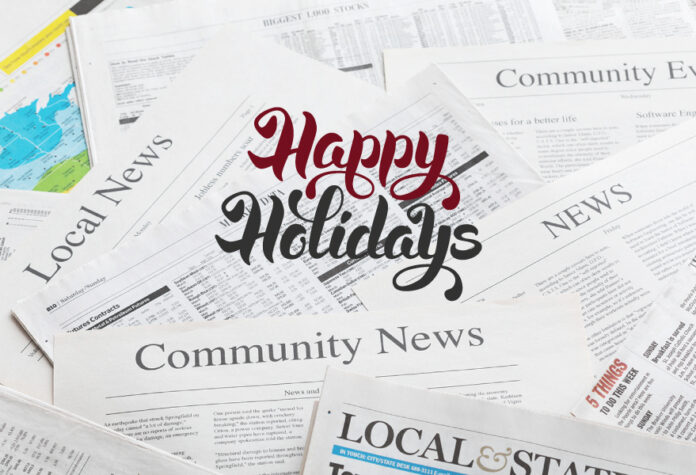
 As we close out 2023, the NENPA staff and Board of Directors wish you and your families a happy holiday season and a peaceful and prosperous New Year!
As we close out 2023, the NENPA staff and Board of Directors wish you and your families a happy holiday season and a peaceful and prosperous New Year!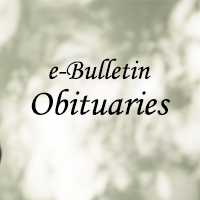
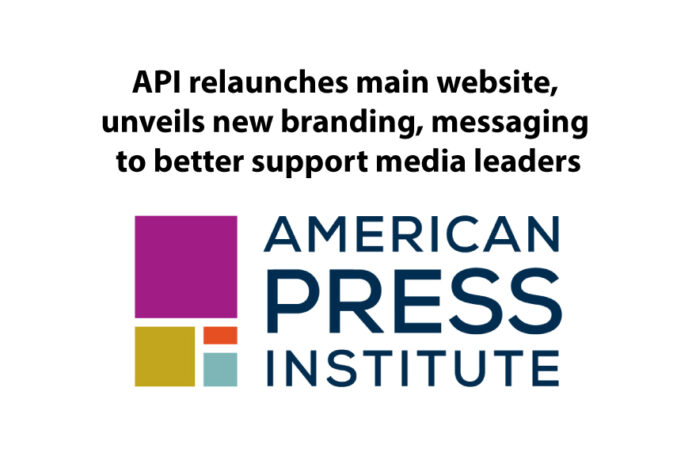
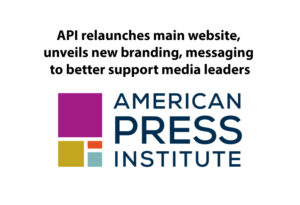 The American Press Institute officially unveiled new branding and messaging on Dec. 5 and relaunched its main website to provide users with a better experience and to more clearly emphasize its support for local and community-based media.
The American Press Institute officially unveiled new branding and messaging on Dec. 5 and relaunched its main website to provide users with a better experience and to more clearly emphasize its support for local and community-based media.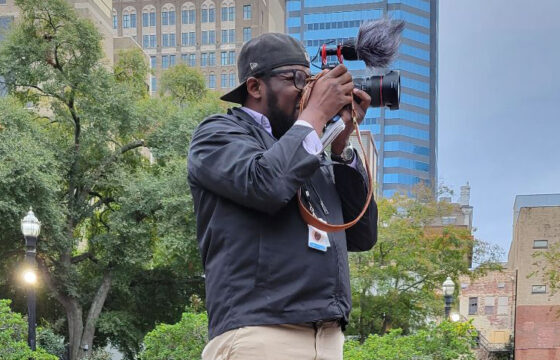

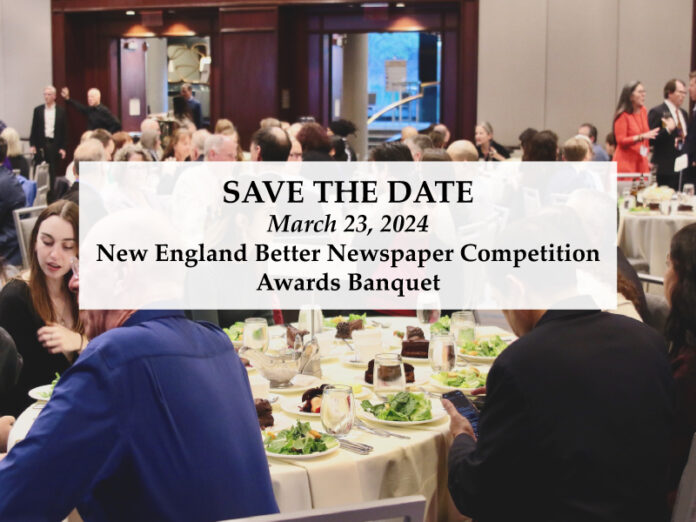
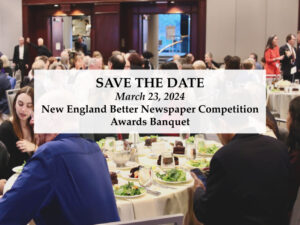 We have received numerous requests for another extension to upload your entries.
We have received numerous requests for another extension to upload your entries.
 The Advertising/Circulation/
The Advertising/Circulation/